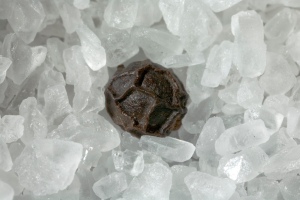I’ve been thinking a lot about improvising in a safe/unsafe environment.
What makes an environment feel unsafe?
High stakes— if you mess up, you fuck it up for everyone. There’s a FORM, and you need to do it RIGHT.
The show matters— when you are performing for an audience that is expecting you to be good– or practicing with that event in mind– there can be a constant looming fear of failing to meet expectations, which becomes a self-fulfilling prophecy after some rough practices.
What makes an environment feel safe?
Low stakes — if you mess up, it’s no big deal.
The show doesn’t really matter— The audience for an improv class show is not expecting professional-level comedy, and if the students don’t deliver… they’re still learning, they’re giving it a go, good for them!
What are the consequences of playing in an unsafe environment?
Lack of safety breeds fear.
Sometimes fear gives people an adrenaline kick that shifts their brains into overdrive, allowing them to be the very smartest improvisers they can be.
Sometimes fear is liquid nitrogen that freezes people’s brains. And it’s really hard to do competent improv, let alone good improv, when your brain can’t function.
What are the effects of playing in a safe environment?
Because messing up doesn’t matter, your brain can be released from its vice grip of fear and just do its thing.
Or, for some people, this might mean getting lazy– oh, it doesn’t matter, who cares, whatever.
…..
I bring this up because I have two back to back nights of improv, and I go home with totally different worldviews from each.
Team practice makes me question why I ever thought I could do improv. I keep screwing up, and it matters, because we have SHOWS booked. The team will fail, and it will be my fault. If I can’t master basic tenets of improv, well, maybe I just shouldn’t be doing it. Everyone would obviously be better off without me around to fuck them up.
Class, even when I fuck up, puts me in a good mood. Improv is fun! We’re all just playing with each other! Oh, whoops, I had a weak character, well, I’ll do better next time, no problemo. “No mistakes in improv” is a legit attitude.
So what does that mean? Should I never perform? Is there a way to lower the stakes of a performance? Is it just a matter of doing the form a lot until it’s ingrained in your brain, like other improv fundamentals? How do you cope in the meantime?
Argh.
…..
Edit: I drafted this post in early April, then dropped out of the improv blogosphere for a month, then revisited it when I drifted back in. During that time, Will Hines addressed pretty much the exact same question on his blog. His answer: you just gotta beat it. Reps, bravery.





